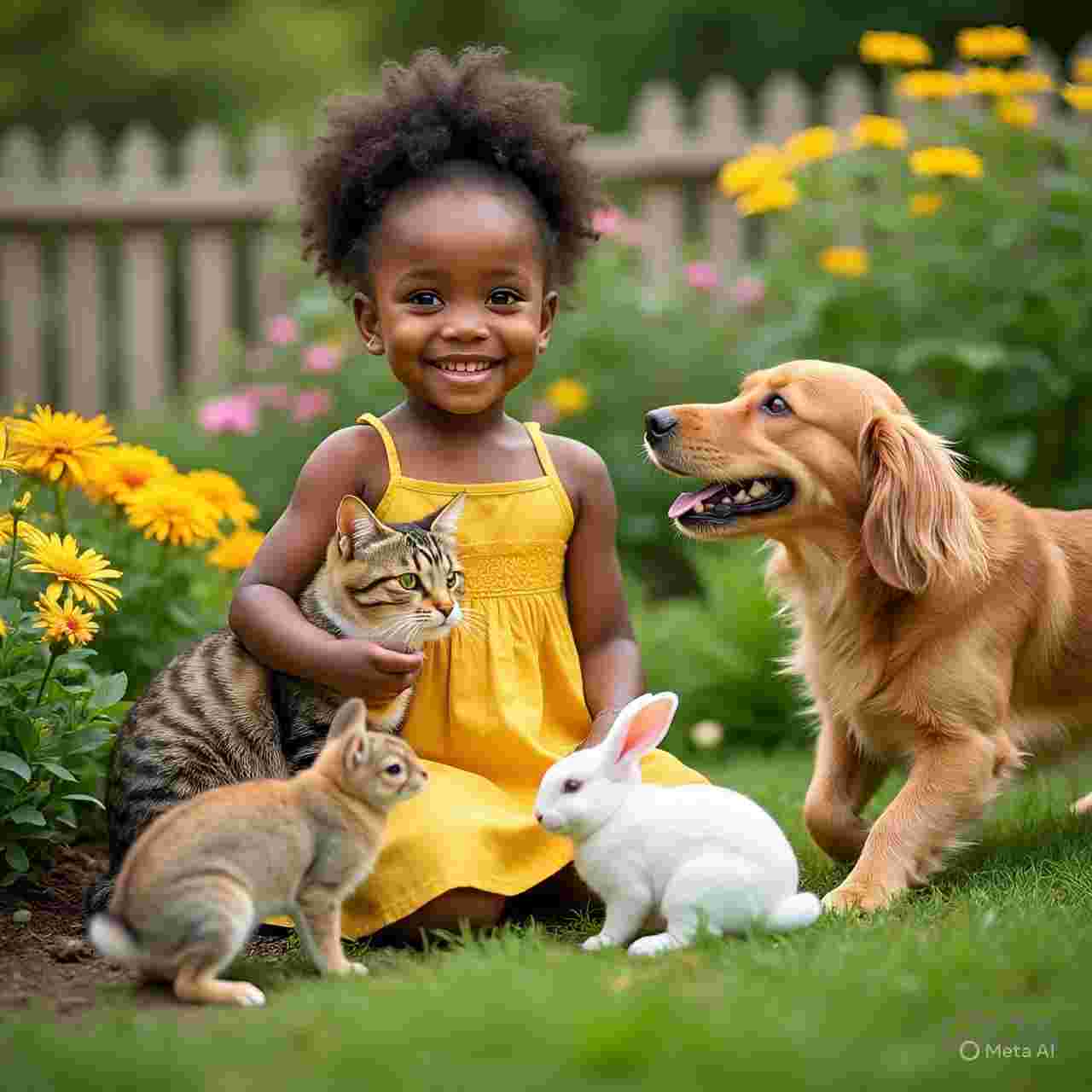Animals often seem to have a special affinity for children, and there are several reasons for this:
1. Innocence and Curiosity: Children are naturally curious and often approach animals with innocence and wonder. This can make animals feel more at ease and trusting.
2. Gentle Interactions: When children are taught to interact with animals gently and respectfully, animals can sense this and respond positively.
3. Energy and Playfulness: Children often have boundless energy, which can be infectious and fun for animals, especially those that are playful by nature.
4. Unconditional Acceptance: Children often accept animals for who they are, without preconceived notions or biases, which can make animals feel more comfortable and loved.
5. Emotional Connection: Children can form strong emotional bonds with animals, which can lead to deep and meaningful relationships.
These factors combined can create a special bond between animals and little children, one that is built on trust, affection, and mutual enjoyment.
1. Innocence and Curiosity: Children are naturally curious and often approach animals with innocence and wonder. This can make animals feel more at ease and trusting.
2. Gentle Interactions: When children are taught to interact with animals gently and respectfully, animals can sense this and respond positively.
3. Energy and Playfulness: Children often have boundless energy, which can be infectious and fun for animals, especially those that are playful by nature.
4. Unconditional Acceptance: Children often accept animals for who they are, without preconceived notions or biases, which can make animals feel more comfortable and loved.
5. Emotional Connection: Children can form strong emotional bonds with animals, which can lead to deep and meaningful relationships.
These factors combined can create a special bond between animals and little children, one that is built on trust, affection, and mutual enjoyment.
Animals often seem to have a special affinity for children, and there are several reasons for this:
1. Innocence and Curiosity: Children are naturally curious and often approach animals with innocence and wonder. This can make animals feel more at ease and trusting.
2. Gentle Interactions: When children are taught to interact with animals gently and respectfully, animals can sense this and respond positively.
3. Energy and Playfulness: Children often have boundless energy, which can be infectious and fun for animals, especially those that are playful by nature.
4. Unconditional Acceptance: Children often accept animals for who they are, without preconceived notions or biases, which can make animals feel more comfortable and loved.
5. Emotional Connection: Children can form strong emotional bonds with animals, which can lead to deep and meaningful relationships.
These factors combined can create a special bond between animals and little children, one that is built on trust, affection, and mutual enjoyment.




